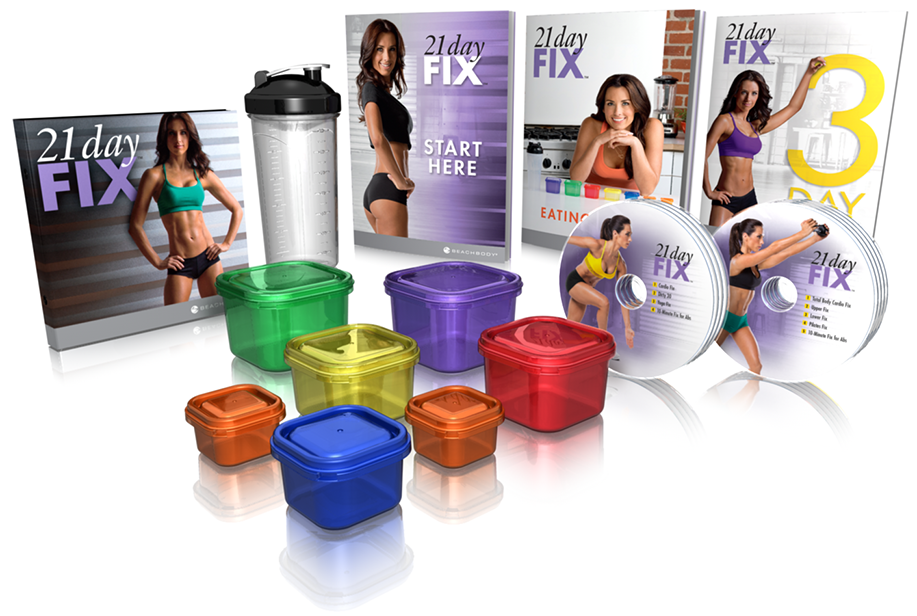So there is a new diet on the block called the 21-Day Fix. If you have been following my blog at all, you would have already figured out that I am not too keen on all the fad diets that pop up from time to time. I do try to keep an open mind with the blind hope that somebody somewhere will advocate for a healthy diet that actually meets people's nutritional needs without giving them heart disease or osteoporosis. However, all the diets I've covered so far have all come up short in one way or another. I think it's time to figure out how this diet stacks up.
So our random questions of the day are:
What is the diet? Does it work? What are the pros and cons? blah, blah, blah ;)
The Beach Body company is behind this new way of eating with the collaboration of Autumn Calabrese, a supposed famed celebrity trainer and bikini competitor. I'm gonna be honest. I'm not too excited to read that the mastermind behind this whole thing is a bikini model, but like I said, I'm going to try to keep an open mind. The diet goes along with their 21-Day Fix workout program. It's based on the idea that it takes 21 days to form a habit. After you go through all 21 days, in theory, it will be part of your routine to eat healthy, and you just keep living your life in a healthy manner... 21 days at a time (21-Day Simple Fitness).
To follow this plan, you have to buy the package which includes the instruction packet, recipes, and workout videos, but the real proverbial meat and potatoes of this diet are the containers. This plan supposedly helps you with portion control and getting the proper foods in the proper amounts by putting all of your food into little Tupperware-like containers:
 |
| Source: https://www.beachbody.com/product/fitness_programs/21-day-fix-simple-fitness-eating.do?ICID=BLOG_BB_21DF |
I really want to know how these containers compare to the suggested servings/# of servings from the USDA. (I know I'm beating a dead horse with the My Pyramid references, but seriously, that is the recipe to healthy diet so that's that). I was able to get some specifics without actually purchasing the packet (which runs for about $60 + shipping and handling if you're curious). However, I can't get the whole gist without buying it.
So apparently there are 6 different colored containers. I found one YouTube video that measured the containers, but the company wants you to just buy the containers so they don't have information published to verify. Here's what that video said:
Color Container
|
Size
|
Food Group
|
|
Green
|
8 oz
|
1 cup
|
Veggies
|
Purple
|
8 oz
|
1 cup
|
Fruit
|
Red
|
5 oz
|
2/3 cup-ish
|
Proteins
|
Yellow
|
4 oz
|
1/2 cup
|
Carbs
|
Blue
|
2 oz
|
1/4 cup
|
Healthy Fats
|
Orange (x2)
|
1 oz
|
1/8 cup (2 tbsp)
|
Seeds & Dressings
|
According to Beach Body's Meal Planner, for a 1500-1799 Calorie diet, you should eat 4 green, 3 purple, 4 red, 3 yellow, 1 blue, and 1 orange. That equals 4 cups veggies, 3 cups fruit, 20 oz proteins, 1 1/2 cups carbs, 4 tbsp healthy fats, and 2 tbsp dressings and seeds. Let's compare that to the USDA's recommendations. Since these recommendations are for a range of Calories, I chose to compare it to a 1600 Calorie meal plan from the Choose My Plate guidelines.
Food Group
|
21-Day
Fix
|
USDA
|
Veggies
|
4 cups
|
2 cups
|
Fruit
|
3 cups
|
1 1/2 cups
|
Proteins
|
20 oz
|
5 oz
|
Carbs
|
1 1/2 cups
|
2 1/2 cups (grains)
|
Healthy Fats
|
4 tbsp
|
5 tsp (<2 tbsp)
|
Seeds & Dressings
|
2 tbsp
|
Fall under proteins and oils, respectively
|
Dairy
|
N/A
|
3 cups
|
Overall, the 21-Day fix diet is SUPER high in protein, veggies, and fruit, pretty low in grains, and completely void of dairy from what I can tell. I do love the thought of people getting more fruits and veggies, but this is a little excessive. Granted, they might explain more in the diet book, but I'm not buying that for the purpose of this blog lol.
I do have to note that this comparison is flawed. First of all, the 21-Day Fix diet categorizes their food groups differently. Mainly, they have a carbs group which I am comparing to the grains food group, and they separate out seeds, dressings, fats, and proteins while the My Pyramid just has proteins and oils food groups. Secondly, that guy in the video measured the containers in fluid ounces. Solid cups do not equal liquid cups, and ounces of meat do not equal ounces of fluid.
Regardless of the exact science of it all, I'm not a huge fan. It's too far off from our recommended nutritional needs. The diet is too new to be extensively researched to see if it actually works to lose weight, but I recommend to save yourself the 60 bucks and use the free resources at choosemyplate.gov.
Weird side note:
Did you know that it actually takes much longer to make a habit than 21 days?! Apparently, we have been misinterpreting research from the 50's this whole time with this idea about 21 days. Seriously, I had no idea, but according to this article in the Huffington Post, it takes anywhere between 18-254 days to form a habit. On average, it's about 66 days, so you'd have to go through the program 3 times before you eat like that unconsciously. Now it's official - I don't like this diet lol.